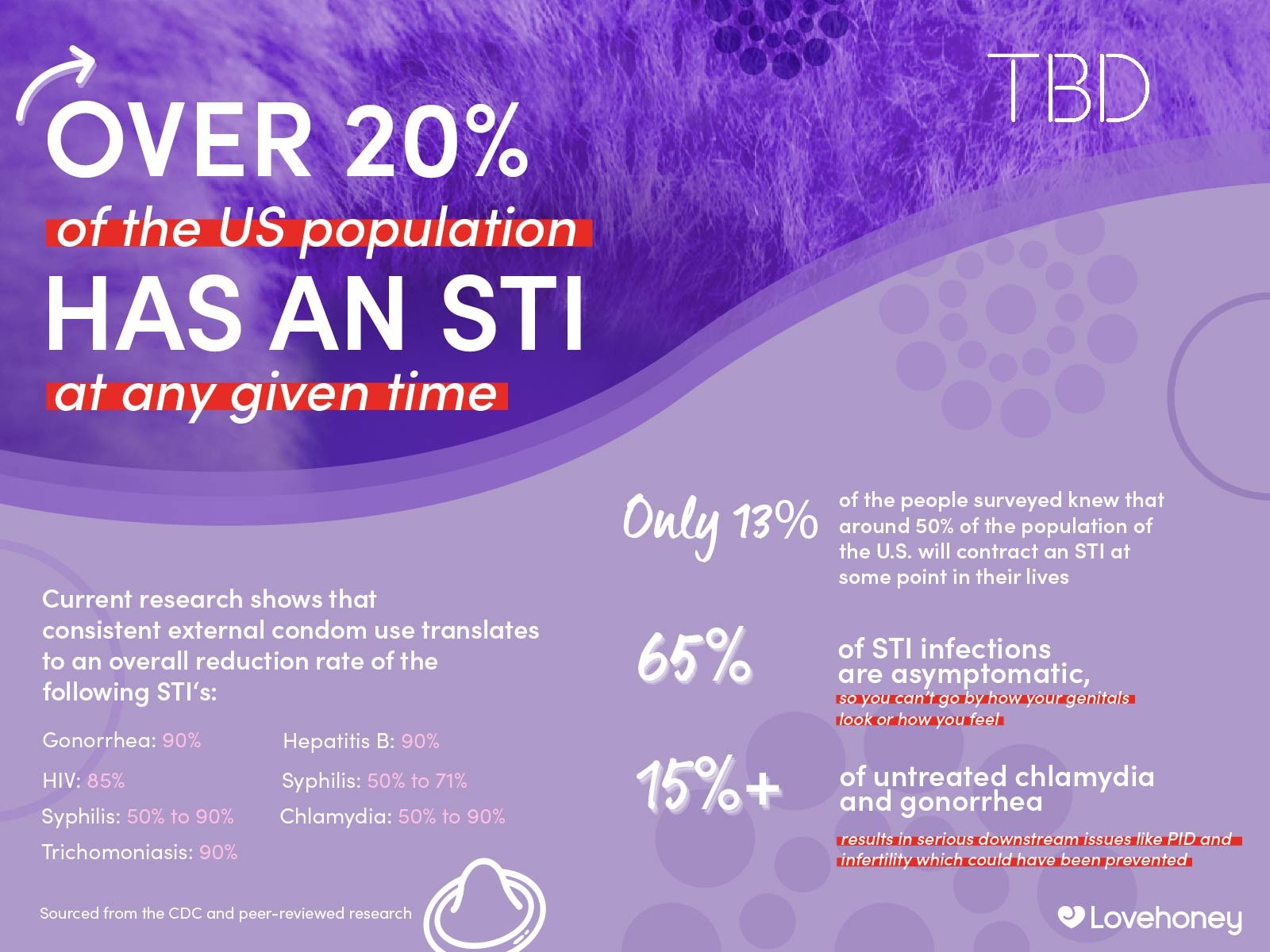STI Education
Having a sexually transmitted infection shouldn’t be a point of shame and it also doesn’t mean the end of your sex life. That's why Lovehoney & TBD Health have teamed up to destigmatize STI's, debunk the most common myths surrounding them and show you how you can have happy, fulfilled sex life no matter you or your partner's status.
If you're dating and have a positive STI diagnosis, what should you disclose and how should you do it?
How can someone support their partner who has an STI?
What are the most common misconceptions about STIs?
What steps should someone take to find a sex positive provider?
Why does STI stigma hurt everyone?
Why do we shame and blame people with STIs for their status, but feel sympathy for people who contract bacterial or viral infections non-sexually?
Different people take different approaches. Some seek to date others with the same status in order to mitigate infection risk. However, you don’t necessarily have to limit yourself to partners of the same status as long as you take appropriate precautions.
This includes communicating up front about your status and taking preventative measures to minimize infection risk, which could include using condoms, taking medications that suppress the infection, avoiding intimate contact during symptomatic periods, and/or the uninfected partner getting a vaccine (e.g., for HPV) or taking medication to lower infection risk (e.g., PrEP for HIV prevention).
It all depends on the specific circumstances, but incurable STIs don’t have to be the end of your sex and love life by any stretch of the imagination!
This answer may surprise you: no! Research has found that rates of STIs don’t differ when you compare people in monogamous and consensually non-monogamous relationships. Of course, monogamy in theory should prevent STIs, but monogamy is often implemented imperfectly.
For example, people may enter a monogamous relationship without getting tested first, which means they could be bringing an STI into the relationship.
Likewise, many monogamous people cheat, and when infidelity occurs, people often don’t use protection or tell their partner about it afterwards, which creates more opportunities for STIs to spread.
By contrast, people in open relationships take more precautions: they practice safer sex more often, communicate more about their sexual activities with others, and get tested more frequently.
We often hear that STIs are at a “record high” these days, but it’s important to consider their historical context. For example, while gonorrhea and syphilis have risen lately, they are still well below their historical peak years ago because we have better treatments today. So they’re certainly more common than they were a few years ago, but far less common than they were decades ago.
Also, with increasing rates of many infections, it’s not always clear if they’re becoming more common, or if we’re just doing more testing and surveillance, which gives the appearance of a rise. Of course, it’s also possible that STIs are truly increasing due to changes in sexual behavior, such as the decline in condom use that has been reported in recent years. The short answer is that it’s complicated!
Education is the first step. Many of us received fear-based sex ed that taught us that STIs are just about the worst possible thing that can possibly happen to you. In reality, however, many common STIs (e.g., syphilis, chlamydia, gonorrhea) are curable, so once you complete your course of treatment and test negative, it’s over and done—nothing to fret over.
Also, for STIs that aren’t curable, they are usually manageable (e.g., HIV, herpes) and, with appropriate precautions and treatment, you can resume a pretty normal sexual and romantic life. However, when distress remains, seeking social support (e.g., through an online support group) can be beneficial in terms of reducing feelings of shame and stigma.
A positive STI diagnosis doesn’t mean the end of your sex life. In fact, there are several products that you can use to remain intimate during a transmissible period.
Here are our expert-recommended products from Dr. Jessica O’Reilly to play with no matter your status.
You can reduce STI transmission risk by not sharing sex toys and/or using condoms on sex toys and be sure to clean and dry your toys after each use.

















